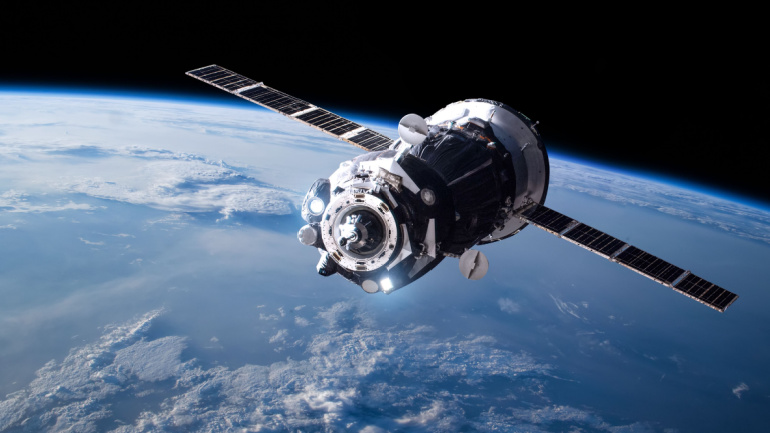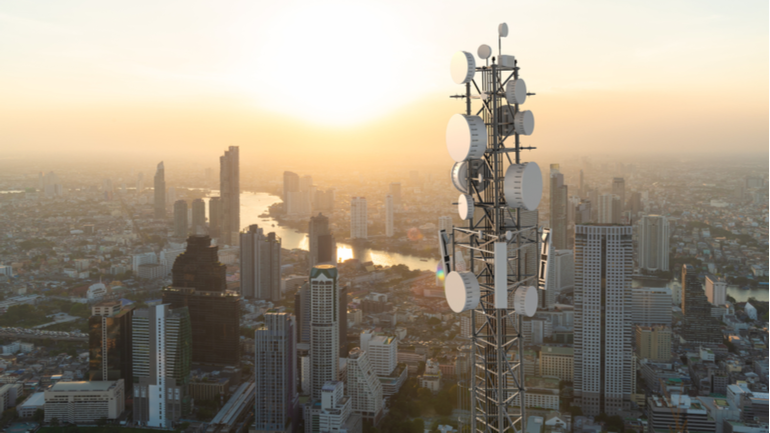In an ambitious move to enhance mobile connectivity across Japan, Rakuten Mobile has announced its plan to offer satellite-to-mobile services by 2026, partnering with AST SpaceMobile. This initiative aims to leverage AST SpaceMobile’s space-based cellular broadband network, enabling direct access to smartphones for text messaging, voice, and data services.
In a significant move to strengthen its position in the global semiconductor industry, the Japanese government has committed approximately $307 million in subsidies to a high-profile semiconductor project. This initiative brings together major players NTT from Japan, Intel from the United States, and South Korea’s SK Hynix. Their collaboration focuses on the development of advanced optical semiconductor technology, which promises faster data processing speeds and reduced energy consumption compared to traditional electrical semiconductors.
Nippon Telegraph and Telephone Corporation (NTT), NTT DOCOMO, and SKY Perfect JSAT join forces with Amazon’s Project Kuiper to turbocharge Japan’s telecom services. The partnership seeks to leverage Project Kuiper’s Low Earth Orbit (LEO) satellite broadband network, offering a breadth of connectivity to enterprises and government entities despite the nation’s geographical challenges. The strategic emphasis is on utilizing Kuiper’s capabilities for redundant communication networks, covering even hard-to-reach locations ramping up continuity of services after emergencies and natural disasters.
The premier Japan-EU Digital Partnership Council has unveiled a refreshingly ambitious approach towards bolstering global connectivity. Highlighting fundamental areas of mutual support, an intriguing plan of Arctic submarine network expansion piques interest. Meanwhile, an equally significant strategy promotes semiconductor industry growth, echoing an urgent call for autonomy in the global supply chain. These pacesetting initiatives promise not only to redefine EU-Japan ties, but also to spark essential digital security dialogues for the evolving tech landscape.
SoftBank, a Japanese corporation, has announced the creation of an expanded evergreen fund dedicated solely to supporting Black, Latinx and Native American entrepreneurs in the United States. SoftBank’s $100 million Opportunity Growth Fund for underrepresented founders was announced in June 2020, and this pledge is a continuation of that fund. Up till now, the initiative has already benefited 70 businesses. About 55% of the first portfolio firms were formed by Black people, 40% by Latino people, and 5% by Black and Latino people. Despite this, the SoftBank Opportunity portfolio favors men, with only 13% of companies in the portfolio having been started by women of color. SoftBank Group announced a pledge to invest in underrepresented creators in the face of rising racial inequality, and the SB Opportunity Fund was formed in less than 24 hours. SoftBank is now doubling down on its first investment by making this initiative…
Two Japanese telecommunications providers, SoftBank and KDDI, have drawn up a plan to invest a total of $38 billion in fifth-generation wireless networks in Japan over the next 10 years. The country is seeking to close the gap between itself and its neighbors, China and South Korea, who have taken the lead in rolling out this ultra-fast technology. The 5G technology is expected to provide a large-scale boost to the country’s economy, benefiting a variety of industries, from Internet services to the automotive industry. Currently, 5G coverage across Japan remains very limited, mainly focused on Tokyo and other major population centers. Both operators plan to invest $19 billion each. For Japan’s 5G network, SoftBank plans to build 350,00 base stations nationwide, of which 50,000 are expected to be completed by March of 2022, and 200,000 more by 2025. Meanwhile, KDDI, which currently has less than 10,000 base stations,…
NEC Corp., a major Japanese information technology company, has agreed to support the development of the UK’s fifth-generation wireless networks across the country, as reported by the British government. The announcement came after Japan and the United Kingdom signed a bilateral free trade agreement following Brexit. Details of the deal are currently unavailable. Since the UK has banned Huawei from deploying its 5G network and has decided to fully remove Huawei’s equipment altogether by 2027 because of potential security issues, the question of who can intervene to fill the empty space left by the Chinese seller has remained open. While European giants Ericsson and Nokia were obvious choices, other candidates also made an appearance. The UK government asked Japan to help deploy 5G networks in the country back in July. British officials then told colleagues in Tokyo that the Japanese technology companies NEC and Fujitsu could be the…
Australia to invest a record A$1.35bn in cybersecurity The Australian government has announced an AUS USD 1.35 billion program to combat the rise in cybersecurity threats that have intensified in recent months. This initiative, named the Cyber Enhanced Situational Awareness and Response (CESAR) package, will seek to identify more threats, fight foreign cybercriminals and build stronger partnerships within the industry. The nation’s largest ever investment in cybersecurity will supercharge the Australian Signals Directorate (ASD) and the Australian Cyber Security Centre. Prime Minister Scott Morrison said, “My government’s record investment in our nation’s cyber security will help ensure we have the tools and capabilities we need to fight back and keep Australians safe.” Read more at https://tinyurl.com/ya8q3xsl India has banned TikTok, WeChat, and other China-based apps The Indian government has banned 59 Chinese-made apps, including TikTok and WeChat, over concerns that “they are engaged in activities which are prejudicial to sovereignty…
With JPY 518.2 billion of value at the end of March 2018, the production of telecommunication material and devices wend down 24% year-on-year. The reason can be found in the constant relocation of factories, but also in the decrease of investments for this industry. The CIAJ (Communication and Information Network Association of Japan) stated that both business and infrastructure, whether it is landline or wireless, related equipments showed signs of lack of interest by investors. One figure represents this fall down: the production and trade of mobile terminal equipment dropped 39% in those 12 months with JPY 171 billion.












